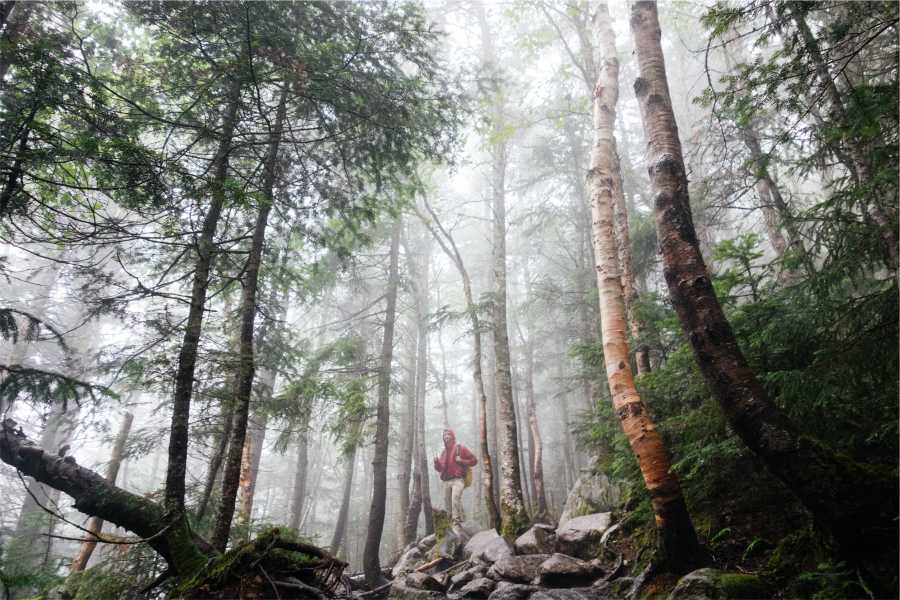We run our website the way we wished the whole internet worked: we provide high quality original content with no ads. We are funded solely by your direct support. Please consider supporting this project.

Christians and Creation Care
Image by Ali Inay
While the mustard seed of the Kingdom has been planted, it obviously hasn’t yet taken over the entire garden (Matt 13:31-42). We continue to live in an oppressed, corrupted world. We live in the tension between the “already” and the “not yet.” Not only this, but we who are the appointed landlords of God’s earth continue to live in rebellion against God and abuse our God-given authority over the earth. Our first mandate included taking care of the earth and animals, and I’m convinced this continues to be a foundational benchmark for how we’re doing as a human race. Unfortunately, this benchmark suggests we aren’t doing well at all.
For example, it’s well known that the welfare of the earth’s ecosystem significantly depends on tropical rain forests. Yet we are currently cutting down an area of tropical forest the size of Greece each year. Some estimate that up to 80% of the earth’s rain forests have already been lost, the majority in the last 100 years.
So too our apathy toward the environment as well as toward the suffering of the poor is largely to blame for the current clean-water crisis humanity faces. All told, approximately 10 million people die each year because their water is unclean.
Our care for animals is even more dismal than our care for the land, in my estimation. Largely due to our poor stewardship, thousands of species of animals have already become extinct or are being pushed to the brink of extinction. According to most experts, the population of over half of all animal species are in decline. Some estimate that in the next 30 years as many as one-fifth of all species living today will become extinct.
But in my opinion, the single most telling piece of evidence that shows how poorly we’re manifesting our call to care for animals is the creation of factory farms. More than 26 billion animals each year are forced to live in miserable, over-crowded warehouses, where there is absolutely nothing natural about their existence and where they are subjected to barbaric, painful, industrial procedures.
We are falling far short of the benchmark, and we, the earth, and animals are suffering as a result.
Being a follower of Jesus gives us no special wisdom to resolve the complex issues that we face regarding how we care for the earth and animals. The answers of the Kingdom are not found in voting one way or another, in boycotting certain industries, or various other activist approaches. While I’m not opposed to these activities, followers of Jesus are called to live in a way that reflects God’s original design for human dominion while revolting against everything that is incongruous with this design. Regardless of what scientific or political opinions may be in vogue, our call remains the same. We’re to manifest God’s care for the earth and demonstrate God’s merciful love toward animals.
This means that we must think critically about things like the energy we consume, the water we use and the waste we throw away. It means we must be informed about the effects our lifestyle choices—and eating choices—have on the earth and on animals.
Insofar as it is possible, we’re to manifest—in the present—the harmonious relation between God, humans, animals, and the earth that will characterize the cosmos when the Kingdom is fully come. This is a fundamental aspect of what it means to be part of a Kingdom that manifests the beauty of God’s original design for creation while revolting against everything that corrupts it.
—Adapted from The Myth of a Christian Religion, pages 148-151
Category: General
Tags: Animals, Creation, Kingdom Living, Myth of a Christian Religion
Topics: Creation Care
Related Reading

William Wilberforce and the Possibility of “Christian” Politics
William Wilberforce was a passionate Christian who entered politics for the sole purpose of ending the slave trade. For more than thirty years he passionately and courageous labored to get Parliament to outlaw the practice. His life’s dream was fulfilled a month before he died in 1833. It’s no surprise, therefore, that Wilberforce is frequently…

Responding to the Negative Fallout of Trump’s Election
Yesterday I suggested that we refrain from judging the motivations of brothers and sisters who voted for Donald Trump (see post). As the young lady I spoke with illustrates, a person could genuinely grieve over the negative implications Trump’s Presidency might have for certain people groups but nevertheless believe that there are considerations that outweigh these negative implications…

The Purpose of the Church
Concerning the preaching of the Gospel, Paul wrote that God’s intent was that “through the church the wisdom of God in its rich variety might now be made known to the rulers and authorities in the heavenly places … in accordance with the eternal purpose that he has carried out in Christ Jesus our Lord”…

God’s Goal for the World
Helga Weber via Compfight In a world that is all about doom and gloom… In a time when we never seem to have enough… In the midst of messages that tell us that we don’t measure up… In an age when we are more interested in whether or not we can own automatic weapons than…

Revolting Against the Cosmic Hitler
Greg returned last week from Europe where he was able to visit some Nazi death camps. In the following, he reflects on a story of a German teenager who actively resisted the Nazi agenda and what that might mean for us as Christians as we revolt against evil: Sophie Scholl was born in 1920…

A Brief Theology of Faith
It is often argued that Hebrews 11:1 provides us with a clear definition of faith. The NIV translates it as, “Now faith is confidence in what we hope for and assurance about what we do not see.” Most of the times when we use different translations of the Bible, the differences between them are about…
